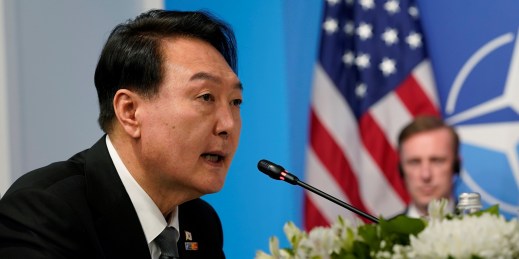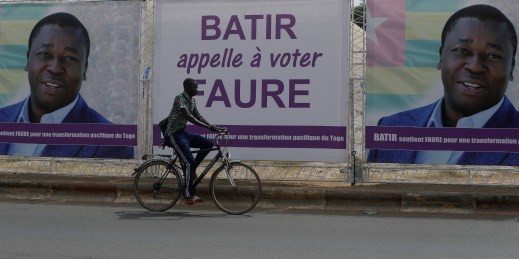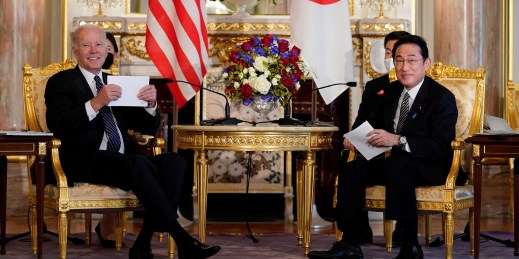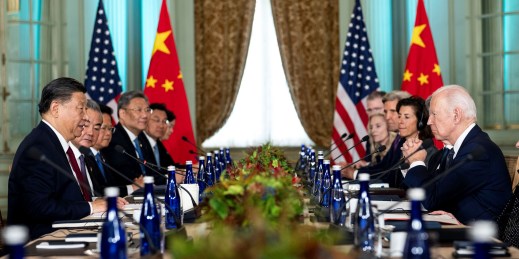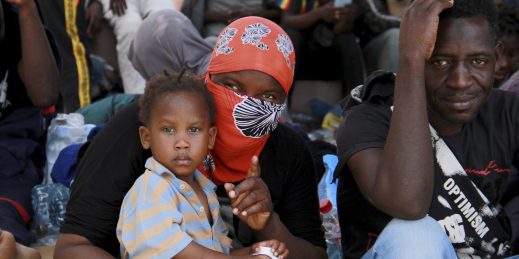Latest Archive
Free Newsletter
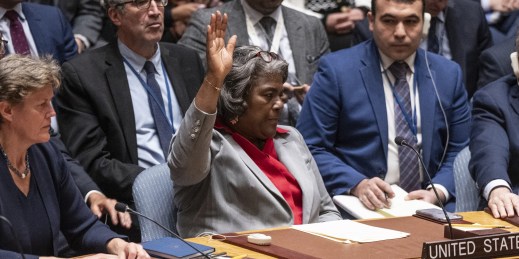
Cynicism about the value of international law is understandable, given its failure to change state behavior. But it is a mistake to look at recent developments and conclude that the rules that underpin the rules-based order do not matter. Understanding why requires thinking more carefully about the purpose of international law.
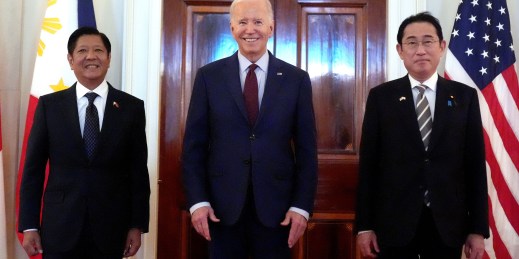
U.S. President Joe Biden hosted the leaders of Japan and the Philippines yesterday, in a meeting centered on shared security interests with an eye toward China’s increasing regional and global influence. This narrow focus, however, highlights the lack of seriousness paid to the escalating crisis in Myanmar.
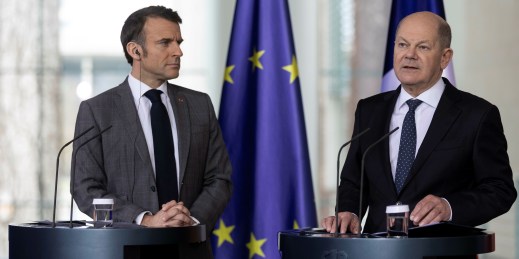
The out-in-the-open friction between German Chancellor Olaf Scholz and French President Emmanuel Macron offers an unsettling glimpse into the complicated political landscape faced by Kyiv and the Ukrainian people as Russia’s assault, now in its third year, makes steady gains ahead of a potentially decisive summer offensive.

The Gulf Cooperation Council states are on a transformative journey, tapping into new sectors to diversify their traditionally hydrocarbon-dependent economies. Now, a regional space race is emerging, driven by domestic economic ambitions and commercial interests, but also the desire to enhance global prestige and soft power.

Around the world, militaries have begun to embrace AI as the latest technological silver bullet. This trend, and its pitfalls, has been on prominent display in Gaza, where the Israeli military’s use of AI-driven models for targeting decisions has had a devastating impact on civilians in exchange for limited strategic results.

The recent approval of the United States’ eighth major offshore wind project provided a boost to the offshore wind sector’s commitment to being part of the solution not only to climate change, but also the rapid degradation of marine biodiversity. These crises are two sides of the same coin and must be addressed together.
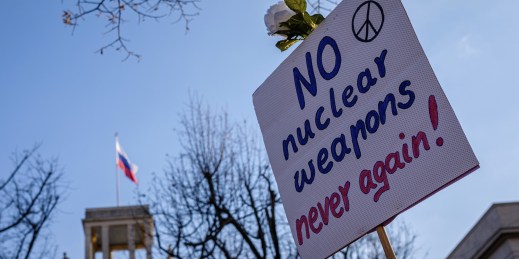
Last week, at the ISA’s annual conference, a roundtable discussion examined how much the nuclear taboo had been weakened by the war in Ukraine and Russia’s nuclear brinksmanship. While the answer was varied, the scholars agreed on one thing: Putin’s threats themselves are not a great barometer of any change in the nuclear taboo.

Feb. 15 was supposed to be a red-letter day for the EU’s 30 million gig economy workers. Instead, the bloc’s flagship digital platform work directive was blocked, the latest twist in the trajectory of a proposal that has been shaped by landmark court rulings, a global pandemic and the EU’s pernicious lobby industry.

Latin America should have a regional conversation about how its corrupt politicians abuse the asylum system by seeking refuge in foreign embassies to avoid accountability for their crimes. But that conversation can’t be held against the backdrop of raids against those embassies, which are legally inviolable under international law.
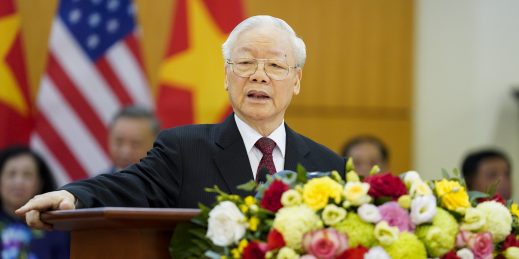
The leaders of Vietnam, a one-party, opaque, and authoritarian state, usually try to present themselves as working closely together, free of discord and united on all fronts. The current reality is far different. Behind the opaque façade, Vietnam’s leadership is now apparently both corrupt and intensely fractious.


